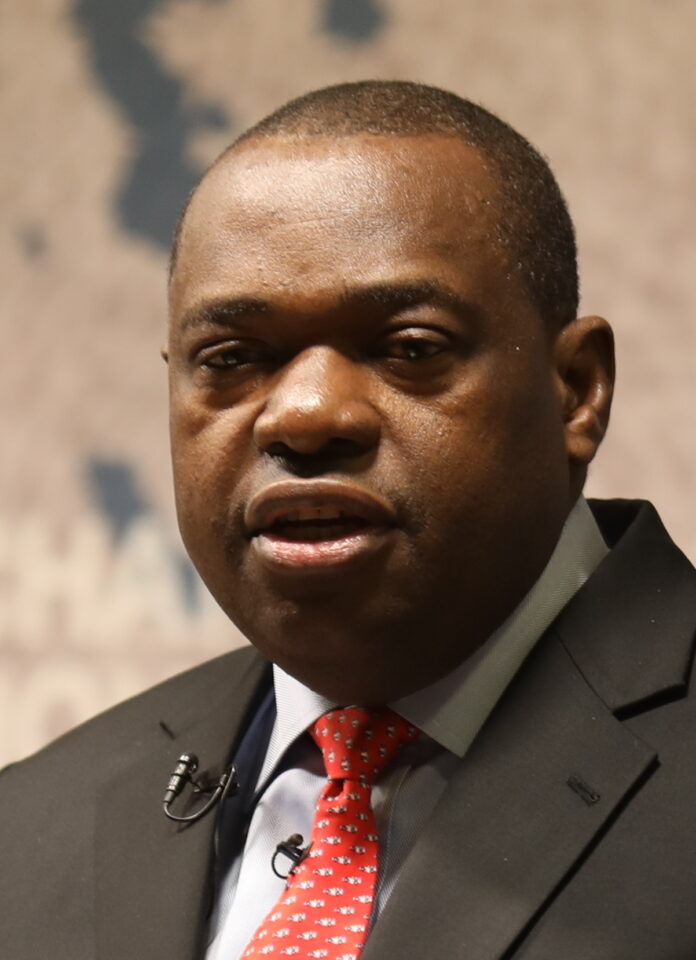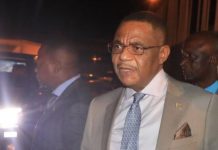Sydney Kawadza
The Zimbabwean government has reacted with consternation a recent debate in the British House of Lords describing the animated and long deliberation as a “shocking level of invasive interest” in the Southern African country.
In a statement, Foreign Affairs and International Trade minister Sibusiso Moyo expressed exasperation over British regard of its former colony as an extended family in need of “constant supervision, correction and even punishment”.
Moyo’s statement was also supported by House of Assembly parliamentary portfolio committee on foreign affairs and international trade, Kindness Paradza, who described the debate as Britain’s “frustration with the inescapable truth” of their diminishing influence in their former colonies.
In the debate, Liberal Democrats spokesperson on energy and climate change Lord Oates questioned the effectiveness of the British government’s policy on Zimbabwe.
In response Baroness Sugg, the Parliamentary Under-Secretary (Foreign, Commonwealth and Development Office, acknowledged the inefficient progress by Zimbabwe towards the economic and political reforms government has set since 2018.
“The onus must be on the Zimbabwean government to deliver that progress. Our policy remains to support the people of Zimbabwe in moving towards a more democratic, stable and prosperous country,” she said.
An unrelenting Lord Oates, who seemed unconvinced by Baroness Sugg, ploughed further criticizing the British government’s policy saying it could result in continued “injustice and repression” on the Zimbabwean people.
“So will the Minister consider convening a round table of experts to develop a more strategic political and economic approach, including looking at how a post-COVID 19 Marshall plan for the region, accessible to countries that met specified governance and rule-of-law standards, could stimulate both economic recovery and democratic renewal in Zimbabwe and further afield?”
The debate, which attracted other members, further discussed issues such as alleged high rates of gender assaults, food insecurity while the Viscount of Hanworth described President Mnangagwa’s government as a “venal and vicious mob of soldiers and policemen who have survived the demise of Robert Mugabe, to whom they owe their positions.”
“Now they are systematically robbing and suppressing the nation. This country (Britain) has profited greatly from an influx of Zimbabweans, who work as nurses, doctors, teachers and others. Will the Government acknowledge this debt and give sanctuary to those such as journalists, authors and churchmen who now find themselves in peril?”
The anti-sanctions crusade by the government didn’t skip the attention of the Lords with Lord Chidgey attacking South African president Cyril Ramaphosa and SADC countries for supporting the call for unconditional removal of Sanctions against Zimbabwe.
The House also discussed how the British can support civil society to defend human rights to stop alleged abuses in Zimbabwe while demanding plans by their government, the EU and Commonwealth in relation to preparations for the 2023 next elections.
More issues raised against the Zimbabwean government included the arrest of Henrietta Rushwaya who was called President Mnangagwa’s “niece” and is languishing in remand prison for allegedly attempting to smuggle six kilograms of gold to Dubai.
They also called for prosecution of “corrupt” Zanu-PF officials and taking measures with the EU to ensure the independence of the judiciary in Zimbabwe.
The House of Lords also called on measures to be taken to encourage the South African government to use their political and economic leverage with Zimbabwe to help resolve the crisis.
There were also calls for sanctions against ministers “for massive human rights violations in Zimbabwe” including the abduction and torture of Joana Mamombe and her colleagues.
However, Moyo said Zimbabwe was “disappointed at the overally negative tone and tenor of the debate and by the uninformed quality of much of the commentary or observation made by those who spoke.”
He scoffed at attempts to link Rushwaya to President Mnangagwa calling it a “new low” by the Lords describing Baroness Sugg’s responses as dredged-up and invariably un-substantiated allegations of human-rights abuses and corruption.
“We note, as deeply unfortunate, the implied threat of more sanctions from the UK and the assurance given to the Lords that such measures are currently under active consideration in London.
“Equally unfortunate is the clear acknowledgement by the British government that it is actively engaging others – including the African Union, the European Union, the Commonwealth, the Southern African Development Community (SADC) and South Africa – with a view to further intensifying pressure upon Zimbabwe.
“One would have thought that, by now, a lesson would have been learned. Zimbabwe is a sovereign state. We chart our own course based on our own national interests. We co-operate with our regional partners and indeed with all partners on the basis of mutual respect and understanding,” Moyo retorted.
He, however, described Britain as Zimbabwe’s “respected and important trade, development and investment partner” while government was “determined to forge a productive, mutually-beneficial partnership”.
In his statement in Parliament, Paradza queried how Britain is failing to support the Zimbabwean government adding that the former was diving the nation.
“So, whilst they subtly seek to drive wedges between the people and the government, they also seek to intensify the pressure on the government by way of sanctions or what they call ‘restrictive measures’,” he said.
Paradza said Zimbabwe had no problem being criticized but expected “constructive” and not “destructive” calling for “evidence-based and factual” queries which are not based on social media hype and fabrication.










